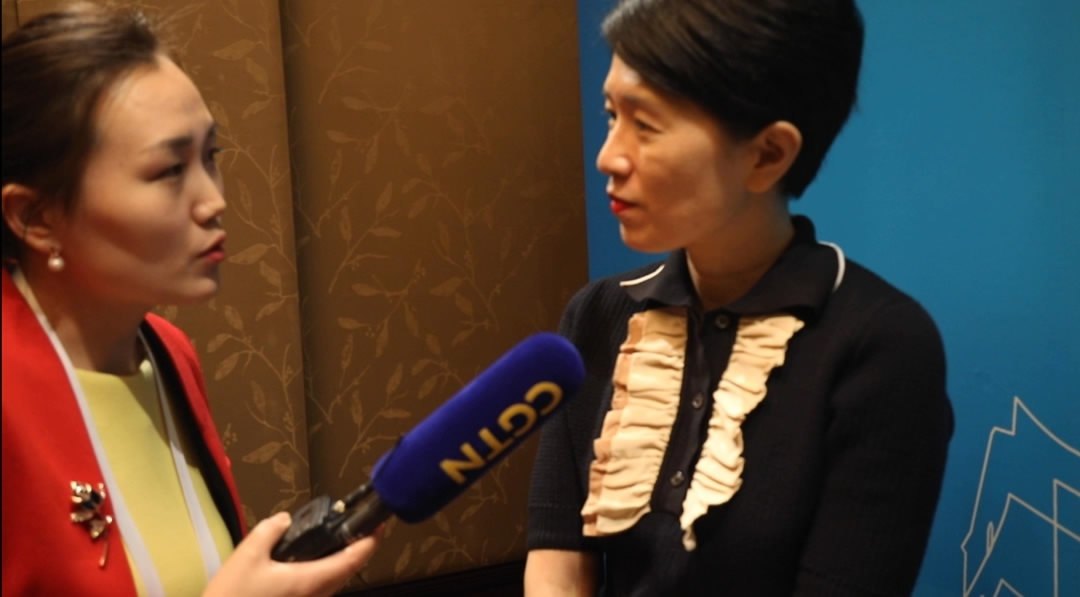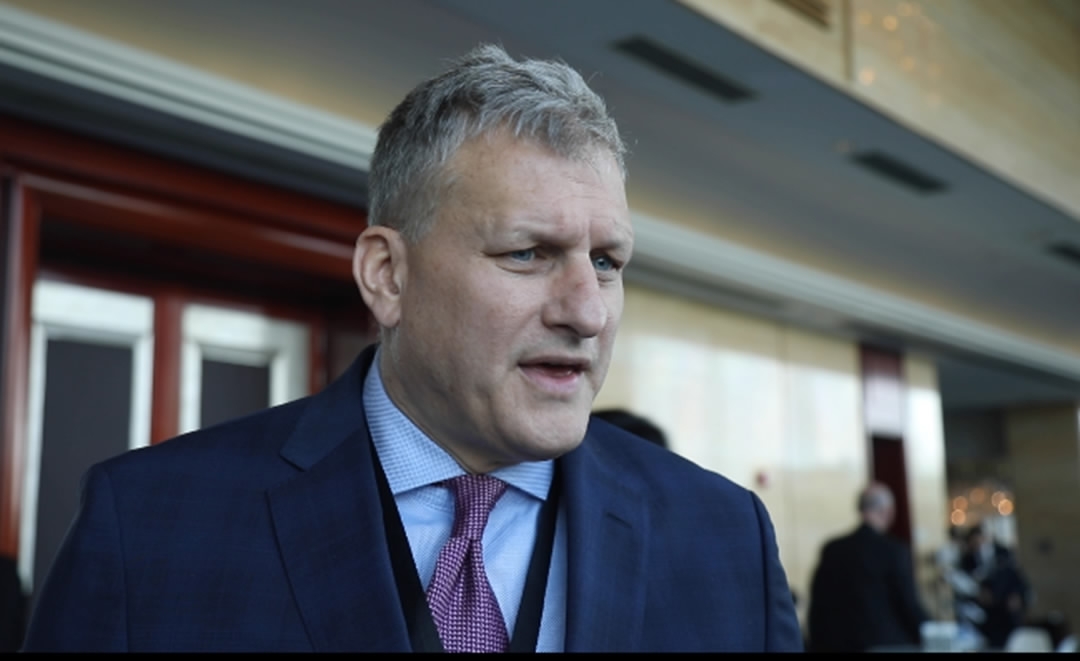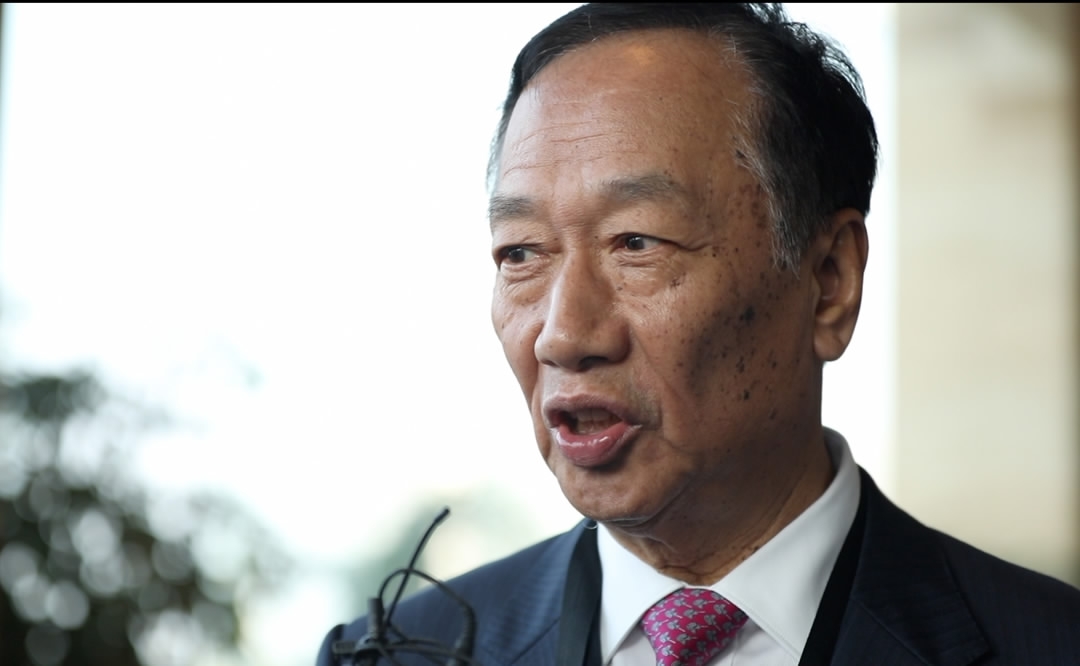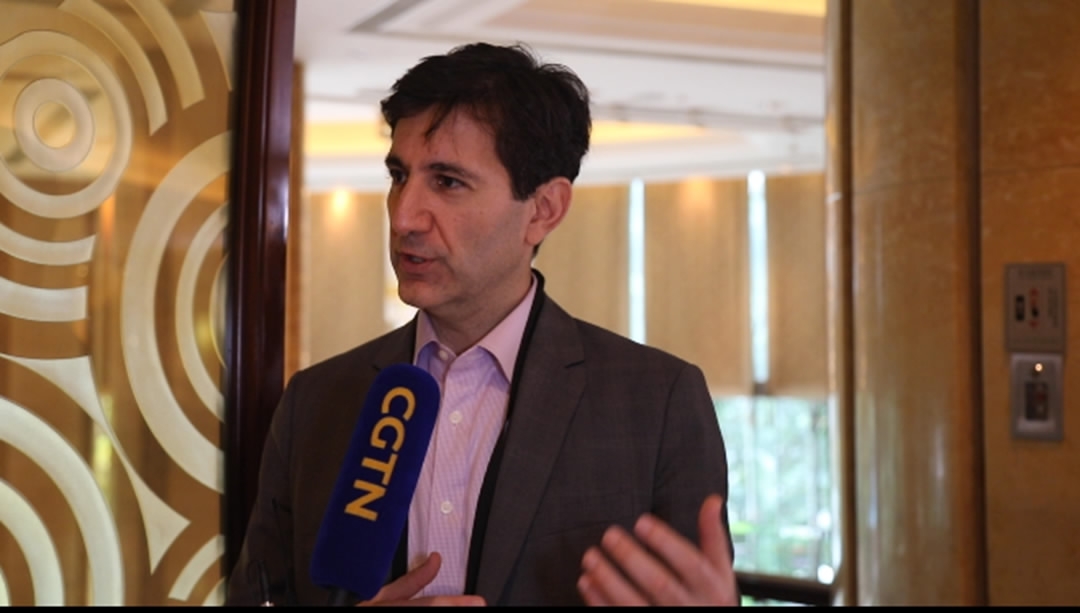“China’s doors will only become more and more open,” President Xi Jinping said during the 19th CPC National Congress, and again emphasized at the 2017 Fortune Global Forum. He pledged to further liberalize trade and investment and welcome more foreign companies to invest in China.
As China deepens its supply-side structural reform for quality growth, how will these policy signals affect the global companies’ investment landscape in China?
CEOs of multinational companies shared some of their views on how global business leaders position their companies to prosper in a more opened Chinese economy.

Rachel Duan, CEO and president of GE (China) in an interview with CGTN /CGTN Photo
Rachel Duan, CEO and president of GE (China) in an interview with CGTN /CGTN Photo
"We are going to develop more, and we are going to source more."
Rachel Duan, CEO and president of GE (China)
Duan said she was very encouraged that from national and provincial levels, all levels has been encouraged to continue to attract foreign investments. “It is very important, and they [foreign companies] will continue contributing to China’s development.”
Talking about how China’s supply-side structural reform is going to affect GE’s China market strategy, she said, “For us, the space we are in, whether clean energy or healthcare or aviation, China is and will still be the largest market. We are actually going to develop more products here, we are going to make more, and we are going to source more here.”
Duan said GE has more than a hundred years’ history in China, but the development has been accelerating since the opening up during the past decades and China now for GE not only means a big market, but also an operation base for the whole Asia-Pacific market, with its R&D capabilities. Earlier in June, GE started Asia’s first biotechnology park in the new Guangzhou Knowledge City, further facilitating Guangzhou’s IAB (next generation of information technology, artificial intelligence and biological medicine) industry strategy).

Scott Kronick, president & CEO, Asia Pacific, Ogilvy Public Relations, in an interview with CGTN /CGTN Photo
Scott Kronick, president & CEO, Asia Pacific, Ogilvy Public Relations, in an interview with CGTN /CGTN Photo
“The most important thing is collaborate and they really work together.”
Scott Kronick, president & CEO, Asia Pacific, Ogilvy Public Relations
“Clearly the Chinese government has made some industries to be strategic industries. Those areas that align with the Chinese government will have opportunities, whether it is green tech, or green energy, clearly can help for China’s growth ambitions.”
Kronick told CGTN that he was much optimistic. He said there has been some growth in the service businesses, an area he is in, to help Chinese companies become global as well.
“We are in the branding business. We have a saying: A brand is not successful until local markets tell you so. So if a company comes to China in a particular area that is in demand by consumers, it will grow. There are certain areas, whether it be luxury goods or consumer goods, where Chinese consumers favor international brands. These sectors will see growth. I am confident you will see growth along these lines as well,” he added.

Terry Gou, founder and chairman of Foxconn in an interview with CGTN /CGTN Photo
Terry Gou, founder and chairman of Foxconn in an interview with CGTN /CGTN Photo
“China’s long term vision is great booster to the world economy.”
Terry Gou, founder and chairman of Foxconn
Guo told CGTN that he paid most attention to two aspects (from the 19th CPC National Congress). One is President Xi’s emphasis on real economy for the reason that as a multinational electronics contract manufacturing company, they are also in the realm of real economy.
The second is the long-term vision put forward by President Xi, for the next 30 years, with year 2020, 2035 and 2050 each as strategic turning point of time. “There is no other administration in the world who can make such long term plans with changing terms every 4 or 6 years. So I think stability and development in China, along with the long-term vision, is a great booster to the world economy as well,” Guo stressed.

Scott Galit, CEO of Payoneer, in an interview with CGTN /CGTN Photo
Scott Galit, CEO of Payoneer, in an interview with CGTN /CGTN Photo
“We are excited about Fintech business in China.”
Scott Galit, CEO of Payoneer
Galit of Payoneer also gives high credits to China’s long-term approach. “For me in general, I would say I admire the thoughtful long-term approach to help align government strategies with policies and with encouraging private industries, to work all together towards a common set of goals, with a very long-term view.” He added that one of the things he was worried about when looking at the US is that things are too short term focused and oriented. “Many of the challenges we all face are very big that require a long term view to make the right investment, right decisions, and to actually support the right outcomes.”
Payoneer, as a financial services company that empowers global commerce with its innovative cross-border payments platform, first came to China five years ago and now have set up multiple offices in the country. “It is actually China who first found out about us through services,” Galit told CGTN.
Galit said their company value also corresponds to Xi’s calling for openness and innovation. “For us, it [Xi’s congratulation letter delivered at the forum’s opening] more warms our heart, because it is similar to how we (Payoneer) see the world. He talked about again openness and innovation, being a connected digital community. Having responsibilities, being inclusive, at Payoneer, that is how we wake up in the morning.”
He went on to talk about the opportunities in China’s fintech industry. “We are excited about fintech business in China and that motivate us. Everybody understands solving real problems, removing the friction. That stands between every person or a business.”
Galit said everything is changing so fast in China and it doesn’t matter whether it is entertainment, whether it is e-commerce and shopping, or biotech or AI. “Everything is going to have a meaningful amount of innovation in China,” he added.






